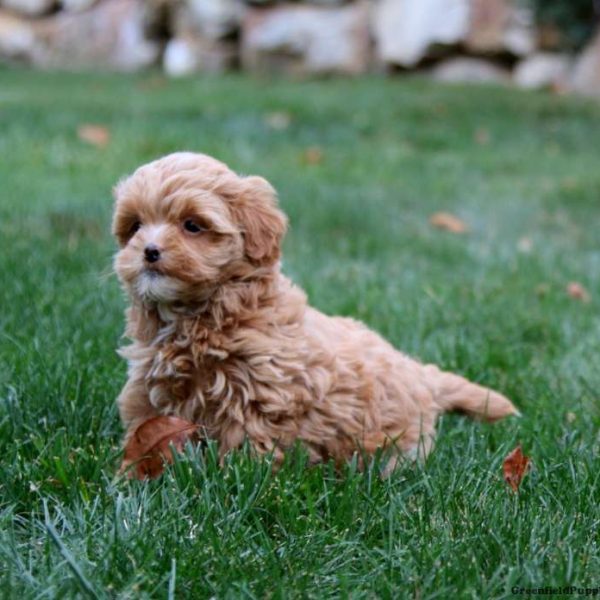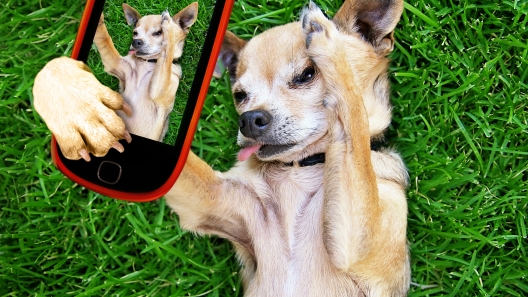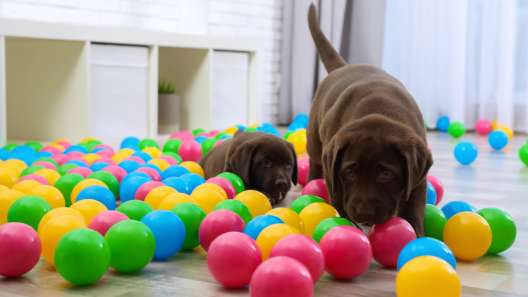
-
Activity Level:
moderate
-
Shedding Level:
low
-
Grooming Level:
high
-
Trainability:
high
-
Good for Novice Owners:
high
-
Adaptability:
high
-
Kid/Pet Friendly:
often
-
Prey Drive:
low
-
Watchdog:
very alert
- Average Size: Small
- Average Lifespan: 10-15 years
- Registered?: other
Shih-Poo Dog Breed Information
Overview
Temperament
Adaptability
Health
Owner Experience
Grooming
Activity Level
Size
Life Span
Did You Know?
The Shih-Poo is a cross between a Shih-Tzu and a Miniature Poodle or a Toy Poodle. With some of the most popular dog breeds as parents, it’s no wonder why the Shih-Poo is also popular. Because this is a mixed dog breed, it is not recognized by the American Kennel Club (AKC). However, it is recognized by the American Canine Hybrid Club (ACHC), Designer Breed Registry, Designer Dogs Kennel Club, and more.
The Shih-Poo has an adorable, alert expression and a small, sturdy body. They can take after the Poodle parent, the Shih-Tzu parent, or have any combination of the characteristics of both parent breeds. In general, they tend to be loving and affectionate dogs that prefer to be with their favorite humans.
Shih-Poos tend to be friendly, playful, and affectionate. With some of the most affectionate dog breeds as parents, Shih-Poos are also very affectionate companions. They love their families and are avidly devoted to them.
Provided they are well-socialized, they tend to be friendly to other dogs, strangers, other pets, and children. They tend to do better with older children who have been taught how to carefully handle a dog. Due to their small size, especially as puppies, a Shih-Poo can be easily hurt by rough play or accidental falls. They can do well in families with younger children as long as interactions between young kids and puppies are closely supervised.
The Shih-Poo tends to be a courageous little dog. They make excellent watchdogs because they are very alert. However, they can become territorial, and barking can become a nuisance if left unchecked. Early socialization and training your dog to stop barking early on can help curb these tendencies and help your Shih-Poo puppy grow into a well-behaved, confident dog.
The Shih-Poo is highly adaptable. They do well in apartments as well as in larger homes and tend to do well in most climates. They are sensitive to heat and cold, so they do best in moderate climates.
Due to their small size, they may need to layer up with some winter dog products for short trips outside when winter rolls in. Because Shih-Poos crave affection and love their humans, they do not like being left alone for long periods of time.
Although the genetic mix in a Shih-Poo can sometimes result in winning the genetic lottery, a mixed dog breed can still be susceptible to health conditions common in one or both of the parent breeds in the cross. Good breeding practices and the health of the parents make a big difference in the health of Shih-Poo puppies.
In the case of Shih-Poos, some potential health conditions to be aware of include hip dysplasia, eye conditions, patellar luxation, von Willebrand’s disease, epilepsy, and Legg-Calve-Perthes. Reputable breeders screen their dogs to make sure they are not passing preventable issues to puppies. By talking with the breeder about the health and genetic history of the parents and asking to see any health clearances, you can allay several of these potential health concerns.
The Shih-Poo is highly intelligent and can be easy to train. However, they can also have a stubborn streak that can cause some difficulty for first-time dog owners. This is often easily remedied with the help of some puppy training classes to keep training consistent, clear, and focused on positive rewards and praise.
They can also be difficult to housebreak, but it can be done with plenty of training, consistency, patience, and some house training tips. Crate training can also help. Shih-Poos respond best to positive, reward-based training.
Whether with praise, treats, or play, you can reward your Shih-Poo for the behavior you like, which will encourage them to do more of it. Show them what’s in it for them and they’ll be more likely to respond.
Coat types and colors can vary greatly in your Shih-Poo. They can have the long, silky, and straight coat of the Shih Tzu, the short, curly, and non-shedding coat of the Poodle, or a combination of both. Most Shih-Poos end up with a curly or wavy and low or non-shedding coat.
However, you should be prepared for your Shih-Poo to exhibit either coat type of the parent breeds, which are both some of the fluffiest dog breeds. This coat looks its best with a combination of brushing daily or a few times a week at home and then professional grooming every four to six weeks. This will help remove tangles and loose hair and prevent matting.
In addition to caring for your dog’s coat, it’s important to regularly trim their nails, brush their teeth, and check their ears. Trimming your dog’s nails once or twice monthly will help keep the nails short and movement comfortable for your dog. Regular dental care is also important, especially because small dogs are more prone to dental disease.
By brushing your dog’s teeth daily and getting cleanings at the vet when needed, you help prevent the tartar and plaque buildup that causes dental issues like gum disease and tooth decay later in life. Floppy ears are more prone to ear infections because they can trap moisture, dirt, or debris. By regularly checking your dog’s ears and carefully cleaning them as needed, you can help prevent ear infections.
Shih-Poos are moderately active dogs that can adapt their energy level to fit their family’s lifestyle. Daily walks and some indoor playtime will give this dog plenty of exercise. Beyond that, most of them can keep up with you on longer walks and can even compete in popular dog sports like rally, obedience, and agility.
Be sure to check with your vet first and get your dog cleared before taking on any rigorous activities or training for dog sports. It’s also important to keep things low impact while they are still growing to avoid damaging developing bones and joints.
One of the smallest dog breeds, a Shih-Poo usually stands 8-15 inches tall and weighs 7-20 pounds. The size of the dam can give you a good idea of what size to expect in a fully-grown Shih-Poo.
Shih-Poos generally live for 10-15 years on average, or more. Some have even been known to live for 21 years!
The Shih-Poo originated in the United States and is also sometimes referred to as a “Shoodle”.









